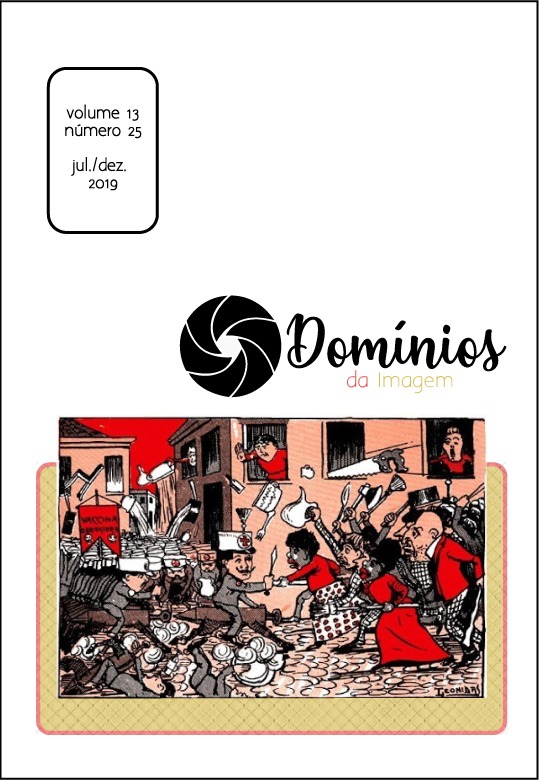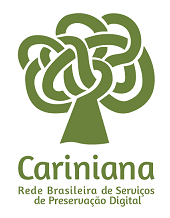What rest of the dictatorship? chilean contemporary documentary and the memory strains
DOI:
https://doi.org/10.5433/2237-9126.2019v13n25p116Keywords:
Chicago boys. Dictatorship, Chile, Authoritarianism, Neoliberalism.Abstract
Social protests and movements emerge in the contemporary Chilean society to face the neoliberal politics introduced in the country during the dictatorship of Augusto Pinochet and still actives today. A tension shakes a long positive memory that supports a positive legacy of the authoritarianism. Cinema is one of the places where this memory has been tensioned. This paper analyses the documentary Chicago boys (Carola Fuentes and Rafael Valdeavellano, 2015), considering this film a contribution to the debate about the civil society participation in the dictatorship, as well as its inheritances in the present.Downloads
References
BOSSAY, Claudia. Chicago boys. Entre caricatura del horror y conocimiento del presente. La fuga, Santiago, n. 18, 2016. Disponível em: http://www.lafuga.cl/chicago-boys/771. Acesso em: 9 ago. 2019.
COLLAS, Gérard. Un bien mauvais sujet. Images documentaires, Paris, n. 23, p. 11-21, out./dez. 1995.
CUNHA, Diogo. Intelectuais conservadores, sociabilidade e práticas da imortalidade: a Academia Brasileira de Letras durante a ditadura militar (1964-1979). História Unisinos, v. 18, n. 3, 2014. Disponível em: http://revistas.unisinos.br/index.php/historia/article/view/7655. Acesso em: 9 ago. 2019.
DEL VALLE DÁVILA, Ignacio. Archivo y ficción: la ecuación corrosiva del film No. In: Le GRIMH: Groupe de réflexión sur l'image dans le monde hispanique. 2016. Disponível em: https://www.grimh.org/index.php?option=com_content&view=article&layout=edit&id=3561&lang=fr. Acesso em: 9 ago. 2019.
GALLARDO, Osvaldo. La institucionalización de las ciencias económicas en Chile. El caso del convenio Universidad Católica-Universidad de Chicago. Revista de historia de América, Cidade do México, n. 145, p. 77-102, jul./dez. 2011.
GARRETÓN, Manuel Antonio. Memoria y proyecto de país. Revista de ciencia política, Santiago, v. 23, n. 2, p. 215-230, 2003.
LAGNY, Michelle. O cinema como fonte de História. In: NOVOA, Jorge (Org.) Cinematógrafo. São Paulo: UNESP, 2009. p. 99- 132.
PÉROTIN-DUMON, Anne. Liminar. Verdad y memoria: escribir la historia de nuestro tiempo. In: PÉROTIN-DUMON, Anne (Dir.). Historizar el pasado vivo en América Latina. Santiago: Universidad Alberto Hurtado, 2007. Disponível em: http://www.historizarelpasadovivo.cl/es_resultado_textos.php?categoria=Liminar.+Verdad+y+memoria%3A+escribir+la+historia+de+nuestro+tiempo&titulo=Liminar.+Verdad+y+memoria%3A+escribir+la+historia+de+nuestro+tiempo. Acesso em: 9 ago. 2019.
REIS, Daniel Aarão. Ditadura e democracia no Brasil: do golpe de 1964 à Constituição de 1988. Rio de Janeiro: Zahar, 2014.
Downloads
Published
How to Cite
Issue
Section
License
Copyright (c) 2019 Domínios da ImagemDomínios da Imagem adopts the Creative Commons Attribution 4.0 International License, therefore, the copyrights related to the published articles belong to the author(s), who grant the journal the exclusive right of first publication.
Under this license it is possible to: Share - copy and redistribute the material in any medium or format. Adapt - remix, transform, and build upon the material, giving due credit and providing a link to the license and indicating if changes were made.












 The works in this journal are licensed under Creative Commons .
The works in this journal are licensed under Creative Commons .